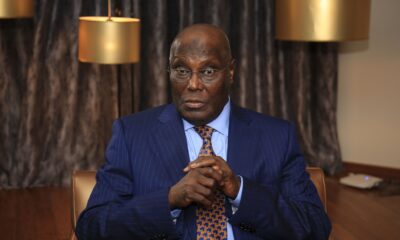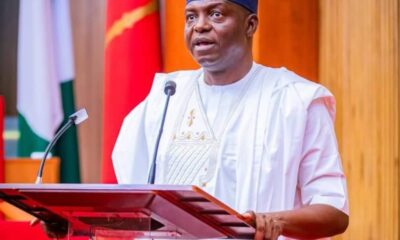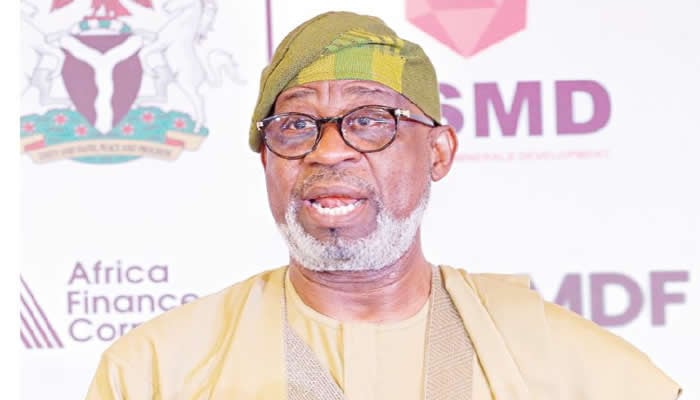Panic has gripped thousands of Nigerians working in the United Kingdom on Certificate of Sponsorship or Skilled Worker visas over the new regulations announced by the British government.
The UK government, in its efforts to control immigration, has removed over 100 jobs, including skilled worker roles, from CoS eligibility, while the salary thresholds for other jobs on the scheme have also been increased by at least 30 per cent.
The government removed lower-skilled roles (previously at RQF Level 3–5) from CoS eligibility unless they appear on a newly created Temporary Shortage Occupation List.
Some of the delisted jobs include managers and proprietors in agriculture, forestry, hospitality, and logistics (SOC 1211–1258); health, community and welfare roles such as dispensing opticians, pharmaceutical technicians, youth and community workers, and counsellors (SOC 3211–3224); protective service roles like police officers (sergeant and below), fire service officers, and prison officers (SOC 3312–3314); as well as creative and performing arts professionals, including artists, authors, translators, actors, dancers, photographers, and interior or fashion designers (SOC 3411–3429), among others.
The regulations, which took effect on July 22, 2025, affect various visa routes, including the Skilled Worker and Health and Care visas, along with the requirements for sponsoring foreign workers.
The new regulations increased the general Skilled Worker salary threshold to £41,700 or higher depending on the role, while health and care roles remained at £25,600.
However, employers in health and care roles must show the salary after all deductions, including accommodation or transport, meaning that the £25,600 is the minimum amount to be received by any of their employees after all deductions.
Many roles previously eligible for the CoS, such as entry-level IT and customer service, no longer qualify unless employers raise pay substantially in line with the new regulations.
The UK government has also increased the minimum skill level to Level 6 (Bachelor’s degree level), while the previously eligible Level 3–5 roles (some admin, technical support, care supervisors) may now be excluded.
Findings revealed that the new regulations have sent jitters down the spine of thousands of Nigerians who are clearly going to be affected by the new rules.
Explaining the new regulations, a UK-based travel agent, Kayode Alabi, said Nigerians and other nationals on CoS visas secured with the delisted jobs might be stranded at the end of the expiration of their agreement with their sponsors.
Alabi, who is the Chief Executive Officer of Phika Travels and Tours, said the affected individuals would not be able to renew their visas upon completion of their current sponsorship, which he said usually lasts between one and five years.
He said, “No Nigerians have been sacked because of the new regulations, but their fate will hang in the balance because at the end of their current sponsorship, those whose jobs have been removed from CoS eligibility will not be able to find a new job in that category, and their visa will not be renewed. If you don’t have a valid visa, you become an illegal immigrant.
“Another challenge those whose jobs were retained under the new regulations will face is that their employers may not be able to pay the new salary threshold, which has risen to £41,700 from £24,000, £25,000 or £26,000 per annum.
“If you are not on any of the delisted job roles, you will still be earning the salary you were earning when you received sponsorship, which is usually between one and five years. By the time that sponsorship expires, will your company be able to pay the new salary threshold? That is the issue.”
He confirmed that many Nigerians were already panicking as a result of the new rules.
“We can say there is panic among our people. Yes, there is. People don’t know what will become their fate at the expiration of their sponsorship, especially when the eligibility criteria for other jobs have been increased. People are afraid,” he said.
Our correspondents gathered that the fear of returning home has gripped affected Nigerians.
A Nigerian in the UK, Banjo Fola, confirmed to Saturday PUNCH that many Nigerians, including himself, were affected by the new regulations.
Fola, who didn’t disclose his job, said, “My visa with this current job will expire in some months, and my employer has said he cannot afford the new salary threshold. It is very hard. I don’t even know what to do.”
Another Nigerian on a CoS visa in the country, who requested anonymity, expressed fear that she might return home at the expiration of her sponsorship next month because of the new rules.
Also, a Nigerian caregiver in the United Kingdom raised concerns over the recent changes to the UK’s Skilled Worker visa scheme, revealing that she may be forced to return home due to the new salary threshold and job delisting.
She said, “My sponsorship will expire in August, and the new regulation has made it impossible to get a new job because of the salary threshold. I may likely return home.”
Expressing similar fears, another Nigerian who spoke on condition of anonymity said he and many others were unsure of their future in the UK.
“Things are not easy. The new rules have cut short our plans to stay longer here. But our current jobs have been removed, meaning that we will be jobless in the next one year. I came here (UK) in February 2023 on a Certificate of Sponsorship. My sponsorship is for three years, so I have less than a year to find another job, which is not even there because of the new salary threshold,” he said.
Commenting on the development, the Chief Executive Officer of Cardinal E-School and Edu Services, Mr Sulaimon Okewole, said over 10,000 Nigerians might be forced to return home as a result of the new rules.
He said it was disheartening that the regulations were affecting many Nigerians who had made long-term career plans in the UK.
Okewole said, “While the UK government’s goal of reducing net migration is understandable, the impact on Nigerians, a community known for its immense contribution to the UK’s workforce, demands some discussions.
“The most immediate concern is the sharp rise in salary thresholds for Skilled Worker visas. For many Nigerians, especially those in sectors like healthcare and IT, this could mean fewer job offers unless UK employers adjust pay scales. This may be a tough task in an economy already dealing with inflation.”
He added that professionals who previously saw the UK as a viable destination may now find their options limited unless they secure roles that meet the higher salary bands.
“It is no doubt that over 10,000 Nigerians will be affected by this new regulation, as they will probably return home or find another destination,” he said.
He also predicted that more Nigerians seeking foreign employment would likely begin exploring opportunities in other countries, as the UK becomes increasingly unfavourable.
A student of the University of Ibadan, Eniola, whose mother works as a caregiver in the UK, also expressed concern.
She said her mother was already grappling with the implications of the new regulation.
“She has practically lost her job because the sponsorship will come to an end in November. She has been there since 2023. She informed me that her job has been delisted, and she is not sure she will find a fresh sponsor or new job. I can tell from our conversation that she is afraid,” Eniola said.
According to data from the UK Home Office, 10,245 Nigerians were issued Skilled Worker visas in 2021. That figure dropped slightly to 8,491 in 2022, before rising to 26,715 in 2023.
However, for 2024, recent data shows that work visa grants for Nigerians are beginning to decline, with fewer Health and Care Worker visas issued in the first half of the year compared to 2023.
FOLLOW US ON:











































